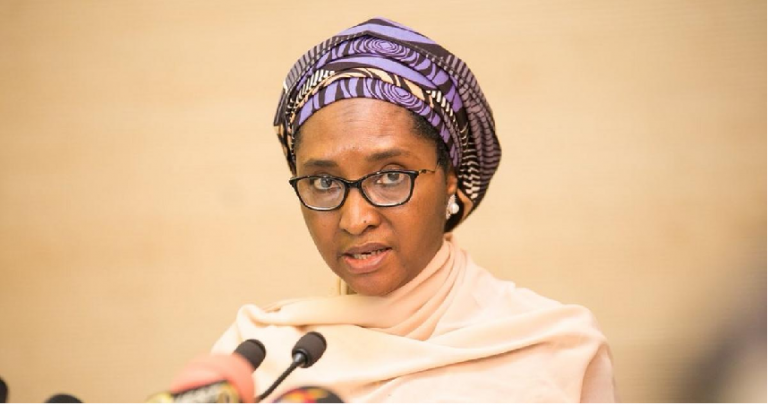
Just recently, the federal government of Nigeria has proposed to borrow over N11 trillion to finance the proposed 2023 budget deficit, a development far above the stipulated threshold in the fiscal responsibility act.
This was disclosed by the Minister of Finance, budget, and national planning, Zainab Ahmed, who appeared before the house of representatives committee to defend the 2023-2025 Medium Term Expenditure Framework (MTEF) and Fiscal Strategy Paper (FSP).
The minister disclosed that the government’s budget deficit is expected to exceed N12.42 trillion if the federal government keeps the petroleum subsidy for the entire 2023 fiscal cycle. She revealed that the 2023 budget proposal is based on two options.
Register for Tekedia Mini-MBA edition 19 (Feb 9 – May 2, 2026): big discounts for early bird.
Tekedia AI in Business Masterclass opens registrations.
Join Tekedia Capital Syndicate and co-invest in great global startups.
Register for Tekedia AI Lab: From Technical Design to Deployment (next edition begins Jan 24 2026).
On the first option, the deficit is projected to be N12.42 trillion in 2023, up from N7.35 trillion budgeted in 2022, representing 196 percent of the total revenue. Concerning this option, she disclosed that the federal government would spend N6.72 trillion on subsidy payments.
On the second option, the minister disclosed that if the federal government keeps subsidy payments till June 2023, the budget deficit would amount to N11.30 trillion. In this option, the PMS subsidy is projected to gulp N3.3 trillion. The new borrowings have been disclosed to come from local and international sources.
Displeased with the federal government proposal over plans to borrow over N11 trillion to finance the proposed 2023 budget deficit, is People’s Democratic Party (PDP) Presidential aspirant, Atiku Abubakar, who has on several occasions proposed solutions to some of the myriad of problems the country is faced with.
Atiku Abubakar took to Twitter where he created a thread on how his government will halt debt accumulation, and attract foreign and local investments in Nigeria if elected.
See what he said;
”Last week the National Bureau of Statistics released the GDP figures for Q2 2022. The government has been unreasonably upbeat about the reported growth rate of 3.4%. The plain truth is that the economy is in deeper trouble than the APC-led government is willing to admit. The citizens’ level of misery hasn’t changed, and the reasons are obvious.
“First, the key sectors of the economy, notably agriculture, oil and gas (the country’s cash cow), and manufacturing (that contributes to jobs), are either growing slowly or declining.
”Second, unabated are rising commodity prices occasioned by high energy and transportation costs (and aggravated by the disorderliness in the forex market). Also, debt levels continue to rise while the fiscal capacity to service its debts is declining.
“All these are enough to erase the perceived gains from output growth. Having run out of ideas, it appears that our unprecedented level of indebtedness is whetting the government’s appetite for more debt. This is a recipe for macroeconomic instability.
“We challenge the National Bureau of Statistics to share with the public their recent statistics on poverty, unemployment, and commodity prices—the reality of which will leave no hope for the common man.
“Like I have said before, increasing debts will never be a solution to our indebtedness. My government, if elected, will halt the rate of debt accumulation and instead focus on private-public partnerships in financing development.
“Also is the consideration of a government of national unity that will douse the temperature, unite Nigerians and pave the way for improved security. Improved security allows for investments and, therefore, an improved economy.
”Also targeted tax rebates to attract foreign and local investments, amongst other proactive measures to attract investments to grow the economy. -AA”
It is interesting to note that the Federal Government’s total borrowing from the Central Bank of Nigeria through Ways and Means Advances rose from N17.46tn as of December 2021 to N19.01tn as of April 2022. According to the CBN, this represents an increase of N1.55tn within the first four months of 2022.
The World Bank had in November last year warned the Nigerian government against financing deficits by borrowing from the CBN through the Ways and Means Advances, stating that doing so will put fiscal pressures on the country’s expenditures.
In Case You Missed It
Below are some of the recent proposed solutions PDP Presidential Aspirant Atiku Abubakar has proffered on some challenging issues in the country, published on Tekedia.
1.) The Atiku Abubakar’s proposal to Fix Electricity in Nigeria
2.) Stabilizing Nigeria’s Economy – PDP Presidential Candidate Atiku Abubakar Proposes $10 billion Economic Stimulus



